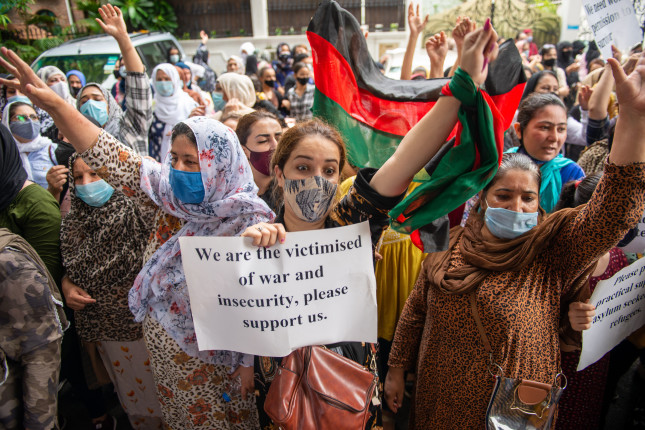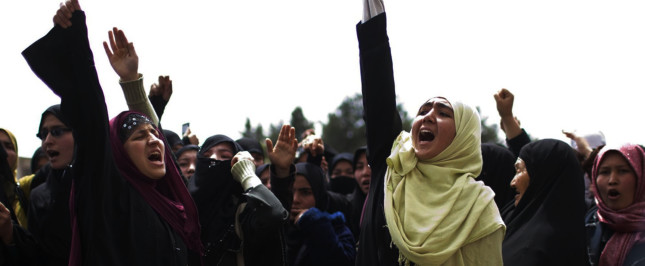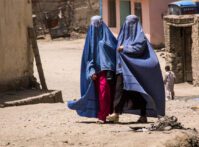-
Afghans that Remain Are in Dire Need of Humanitarian Support
September 1, 2021 By Sara Matthews
Although large-scale evacuation efforts have dominated international attention, evacuation is only an option for a “tiny fraction” of the Afghan population, said Vicki Aken, Country Director for Afghanistan at the International Rescue Committee, at a congressional briefing hosted by the Tom Lantos Human Rights Commission. The briefing was focused on the evolving humanitarian situation in Afghanistan and the need for civil protection in the country. “More than 40 million Afghans will remain in Afghanistan,” said Aken. “And half of them already face critical humanitarian needs.”
Even before the Taliban’s recent takeover, the situation in Afghanistan was already dire, said Rhoda Margesson, Specialist in International Humanitarian Policy for the Congressional Research Service. Prolonged conflict and natural disasters, including the 2018 and 2021 droughts, have given rise to a protracted displacement crisis as well as chronic poverty and vulnerability. More than 90 percent of Afghans live on less than two dollars per day, and nearly half of children are malnourished, said Aken. This already fragile situation is further exacerbated by COVID-19, which has strained the country’s limited resources. The needs of those that remain in the country are expected to increase exponentially in the coming weeks, said the panelists.
To address this crisis, non-governmental organizations (NGOs) need immediate financial support from the global community. Currently, the United Nation’s (UN) humanitarian response in Afghanistan remains only 38 percent funded, said Astrid Sletten, Country Director of Afghanistan for the Norwegian Refugee Council. In addition to funding, NGOs also rely on UN leadership to establish clear frameworks for operations and to ensure the safety of staff on the ground, said Jared Rowell, Country Director for Afghanistan at the Danish Refugee Council. Finally, any sanctions leveraged against Afghanistan must include exemptions for humanitarian activities and supplies. Aid should not be contingent upon the regime under which people live, said Aken.

The rights of women are of particular concern, said the panelists, given the Taliban’s brutal history of misogyny and oppression. In addition, reports of gender-based violence have risen significantly during the pandemic. The convergence of the Taliban takeover with these present vulnerabilities poses serious threats to women’s immediate safety, as well as to the progress made on women’s rights in the last 20 years. For example, some Afghan provinces are already refusing to allow female staff to perform their duties, causing significant delays in the resumption of humanitarian work, said Rowell. The matter also holds symbolic significance, with the treatment of female NGO staff serving as a “test case” for how women will be treated in the country more broadly, he said. “Women need to be able to safely work in this country. They need to have their basic rights ensured and protected if there’s going to be any sort of attempt at legitimacy moving forward.”
Despite these challenges, international efforts in Afghanistan have not been a “waste,” said Sletten. Over the last 20 years, significant advancements have been made in education and capacity building. “And we can still save that part of Afghanistan by not abandoning them in their time of need,” she said. Given that 99 percent of NGO staff in the country are themselves Afghans, it is important to remember that Afghans have been, and will continue to, save themselves, said Aken. “They appreciate any support that the international community can give them, but Afghans are incredibly resilient people,” she said.
Read More:
- 70 percent of Afghans don’t have access to clean drinking water. How will the Taliban’s takeover impact this water security crisis?
- Reported rates of gender-based violence skyrocket during COVID-19.
- How can local environmental governance help stabilize Afghanistan after US troop withdrawal?
Sources: Danish Refugee Council, International Rescue Committee, Library of Congress, Norwegian Refugee Council, Tom Lantos Human Rights Commission.
Photo Credit: Afghan women holding placard protesting outside at UNHCR (United Nations High Commissioner for Refugees). PradeepGaurs/Shutterstock.com; Women with fists raised in Kabul, Afghanistan. john smith 2021/Shuttershock.com.
Topics: Afghanistan, conflict, Dot-Mom, foreign policy, GBV, gender, human rights, humanitarian, On the Beat, security
 A Publication of the Stimson Center.
A Publication of the Stimson Center.







